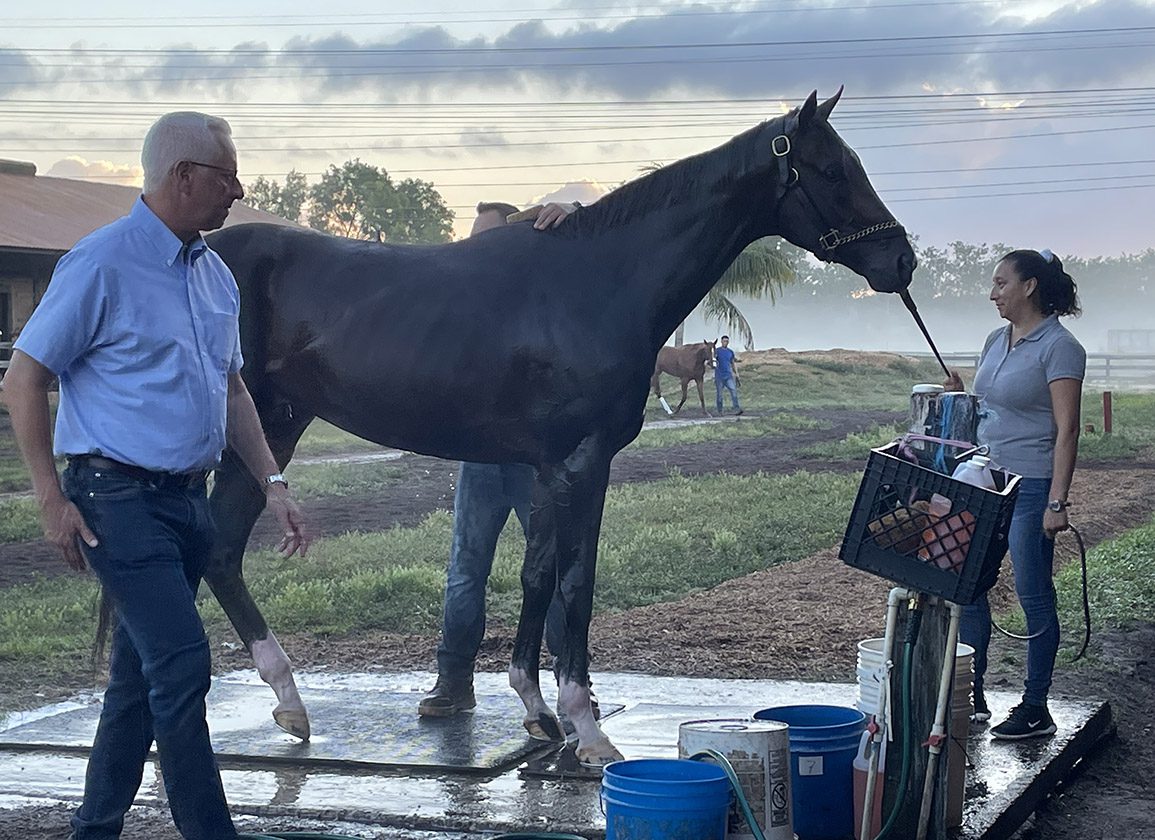By Bill Finley
The three New York stewards met with Trainer Todd Pletcher and his representation Wednesday “regarding an alleged medication violation of a horse that raced in New York on September 5, 2022,” according to Brad Maione, Director of Communications for the New York State Gaming Commission. Maione was answering an email request from the TDN for information on the meeting.
“In this case, the matter likely would have been adjudicated months ago but for the repeated procedural delays sought by the trainer's counsel,” Maione wrote.
According to a report in Tuesday night's New York Times, the horse in question was Forte (Violence) after his win in the Hopeful S. He would go on to be the two-year-old champion and the Kentucky Derby favorite before being scratched the morning of the race with a bruised hoof.
Questions have been as to why Forte's positive test–both the initial sample and the residual or `B' sample–was not made public sooner.
“Today's meeting (which the Stewards refer to as a “Stewards' Hearing”) was simply an opportunity for the licensee to tell the Stewards the licensee's side of the story–a standard step in an investigative process. The three Stewards will consider the evidence and information involved in the matter, and then the State Steward will determine whether to issue a ruling for a violation. If and when a ruling is issued, it will be published online at https://rulings.gaming.ny.gov/,” he continued.
Maione said that in New York, as in most jurisdictions, the stewards identify horses to have both blood and urine samples drawn. Once samples are taken, they are shipped to the New York Equine Drug Testing & Research Laboratory in Ithaca for analysis, which usually takes approximately three weeks. If the laboratory detects and confirms the presence of a prohibited substance, the laboratory promptly informs the Commission, which promptly informs the State Steward at the racetrack where the horse's sample originated.
That “blind” positive is then matched, and an investigation into the matter is launched. The trainer is then given the option to have the residual sample tested at an approved laboratory at his own expense. If the B sample is also positive, the stewards may assess a fine or other penalty, and the trainer may challenge that penalty at an administrative hearing.
According to a press release from the Horse Racing Integrity & Welfare Unit Tuesday, once the AMDC goes into effect May 22, that is the point at which the information will be made publicly known in the future.
Said Maione, “In this case, two factors impacted the timeline:
1. The trainer exercised the opportunity to have a residual sample tested, which necessitated the trainer locating a separate RMTC-approved laboratory equipped to conduct the requisite test. In this case, several labs were contacted before finding a capable laboratory.
2. After the Commission and trainer received confirmation that the residual sample was also positive, the trainer's counsel has sought repeated postponement of the Stewards' Hearing, which impeded the Stewards from making a determination earlier.”
Not a subscriber? Click here to sign up for the daily PDF or alerts.






